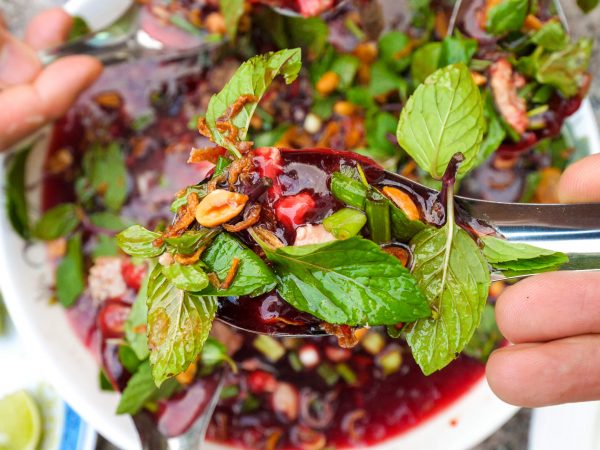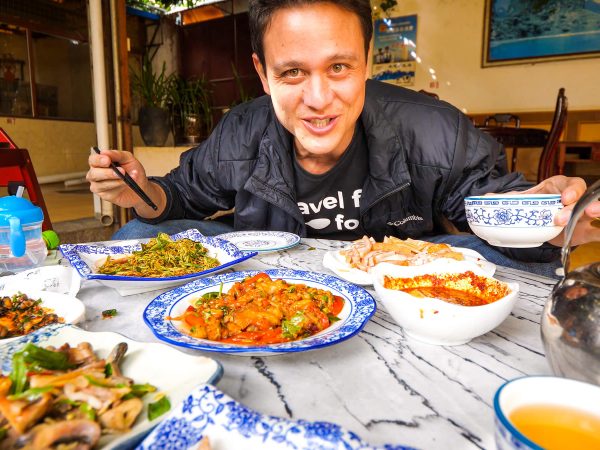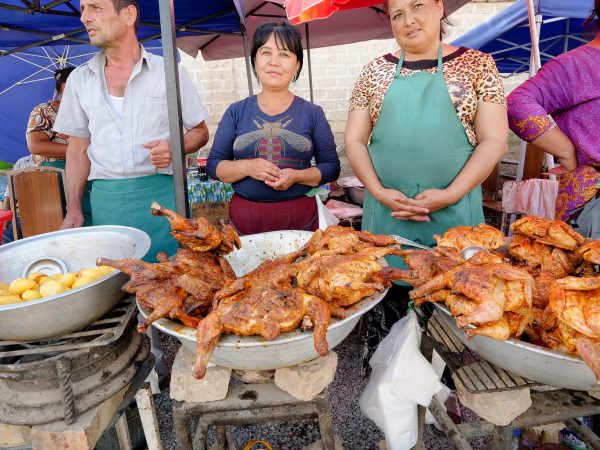

Chengyang is a little cluster of villages inhabited by the Chinese Dong minority people.
The town is located in the northern part of Guangxi Province, just 30 minutes by bus from the larger city of Sanjiang and about 4 hours from the bustling modern city of Guilin, China.
Chengyang is famous because the entire village is built from wood, giving everything an antique look and feel.
The “Wind and Rain Bridge (程阳桥)” and the traditional drum towers (more information below) are part of Chengyang’s most prized attractions.
I visited Chengyang after spending some time in Yangshuo, China.
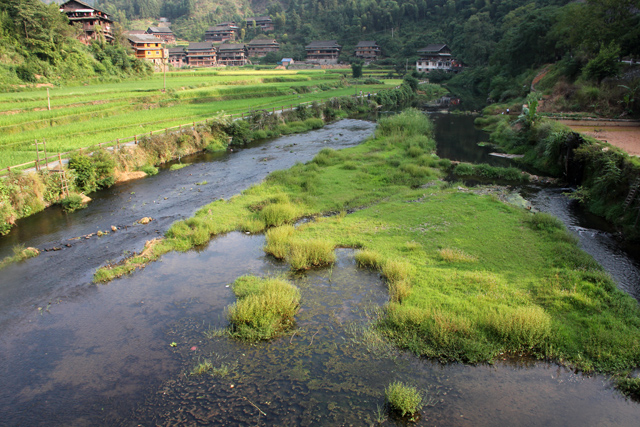
Geography of Chengyang
Chengyang really consists of eight different villages that occupy a small basin in the rolling hills of the area.
Like in much of southern China, rice is of utmost importance for life, and the village revolves around its production.
The main touristy center of Chengyang is located just across the Linxi River from the main access road to get there.
In order to get to the village, you have to cross over the Wind and Rain Bridge by foot. Apart from a few motorcycles, Chengyang is spared of the noisy buses and motorized traffic.
Get exclusive updates
Enter your email and I’ll send you the best travel food content.
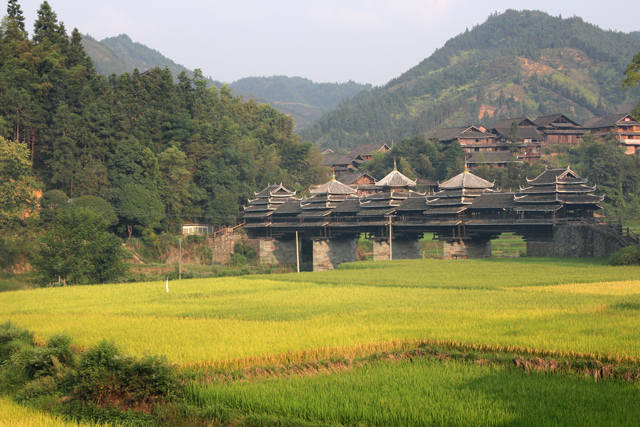
How to Get to Chengyang Village
The largest and most connected city in the area is Guilin, accessible by international flights as well as trains and buses from all parts of China.
I took a local bus from Guilin to Sanjiang (4 hours at around 30 – 40 CNY) and then another local bus from Sanjiang to the gate of Chengyang (30 minutes at 6 CNY).
The local bus will drop you off at the entrance gate where you’ll need to pay a one time fee before walking into the village.
Chengyang Entrance Fee
Buses from Sanjiang drop you right in front of the ticket office, located about 100 meters down the road from the main bridge.
The cost is a one time fee of 60 CNY for adults and includes a free traditional “oil tea” (doesn’t that sound good?).
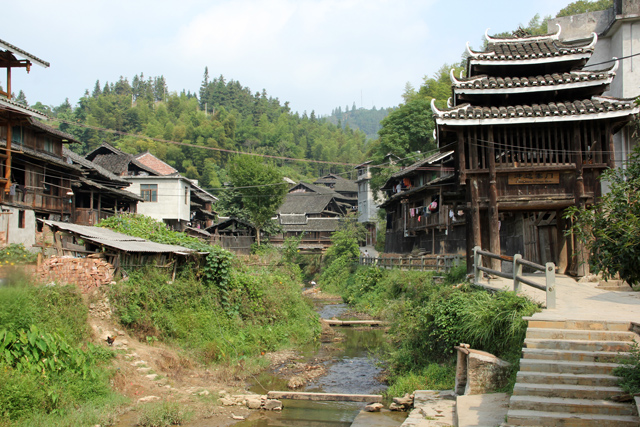
Where to Stay in Chengyang
There are now a number of budget options for accommodation in Chengyang.
I stayed at the Dong Village Hotel, actually located just outside the main area of the village and it had a great view of the Wind and Rain Bridge. Double or triple rooms go for about $15 – $20 per night and they cook delicious Chinese food!
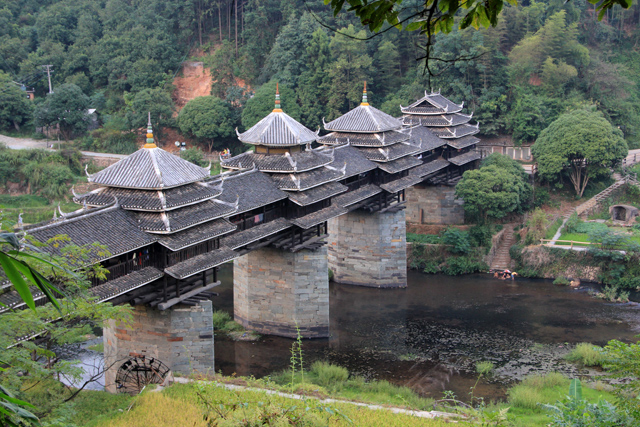
Wind and Rain Bridge (程阳桥)
The most important asset of Chengyang is the Wind and Rain Bridge (程阳桥).
The scenic covered bridge was completed in 1916 and spans a total of nearly 65 meters in length.
The structure is more than just a useful bridge, it includes a series of shaded pagodas, corridors, verandas, relaxing benches and nowadays a souvenir market.
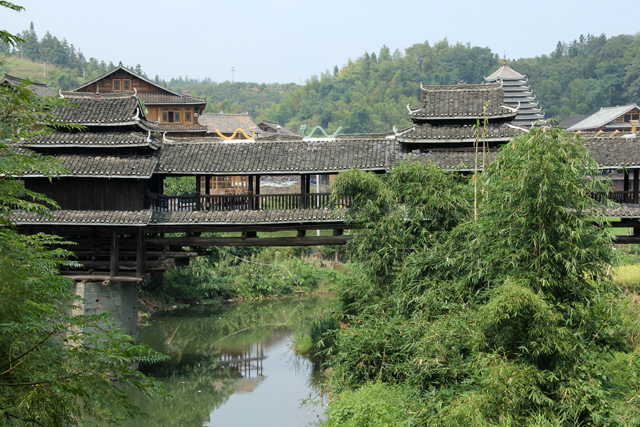
Things to do in Chengyang
Walk from Village to Village
Chengyang is a great place to walk around from village to village. There are eight villages to be exact, and while the first few villages have become quite touristy, the further villages are almost completely still local and barely even touched by most of the tourists – life goes on as it did hundreds of years ago.
Drum Towers
With each village is a drum tower – a pagoda looking structure housing an official drum that previously functioned as a time signal and as a community gathering place.
Nowadays you can visit each and every drum tower throughout Chengyang, a few have been restored while a few are in rough condition.
Dong People Cultural Show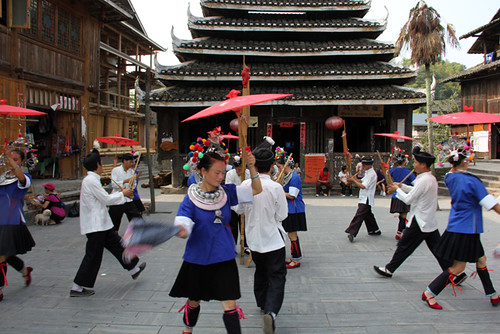
Being inhabited by the Dong ethnic minority, one of the ways Chengyang caters to tourists is by providing daily cultural dance shows.
Hike to the Viewpoint
The surrounding rolling hills offer a great place for a little exercise and a chance to view Chengyang from above. The hike to the top of the hill takes about 15 minutes and you’ll enjoy a wonderful bird’s eye view of Chengyang village and of the Wind and Rain Bridge.
Drink Chinese Tea
Chinese tea is grown around Chengyang, and it doesn’t get much better than relaxing in a quiet place while sipping on Chinese tea. You can also enjoy a quick Chinese tea drinking ceremony in Ma’an village.
Relax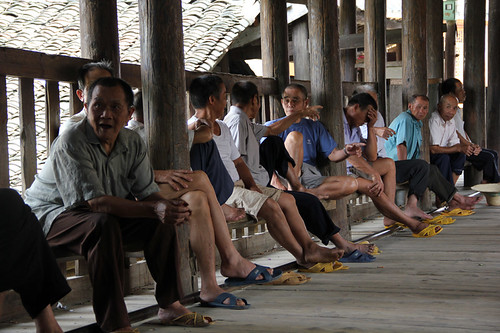
Without motor vehicles, Chengyang is quiet and relaxed, and the farming culture dictates a life of working extremely hard at some times of the year and relaxing for the rest of the year.
The local Chengyang bridges are the best place to enjoy an afternoon of relaxation!

What to Eat
There aren’t too many restaurant options, but Chengyang is seeing growth as a Chinese tourist destination, so that maybe changing rapidly.
In the main village of Chengyang there are a few homes that have started cooking local Chinese food. At the very entrance of the village, a lady serves excellent Guilin rice noodles and stir fried noodles (I got the delicious home cooked fried noodles).
If you continue to walk down the alley, you’ll get to another restaurant that serves local Chengyang delicacies like boiled fish and tofu and the delicious Chengyang Chinese ceviche.
Have you ever been to Chengyang or seen the Wind and Rain Bridge?
Get exclusive updates
Enter your email and I'll send you the best travel food content.


